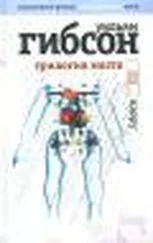Уильям Гибсон - Skinner's room
Здесь есть возможность читать онлайн «Уильям Гибсон - Skinner's room» весь текст электронной книги совершенно бесплатно (целиком полную версию без сокращений). В некоторых случаях можно слушать аудио, скачать через торрент в формате fb2 и присутствует краткое содержание. Год выпуска: 1991, Жанр: Киберпанк, на английском языке. Описание произведения, (предисловие) а так же отзывы посетителей доступны на портале библиотеки ЛибКат.
- Название:Skinner's room
- Автор:
- Жанр:
- Год:1991
- ISBN:нет данных
- Рейтинг книги:5 / 5. Голосов: 1
-
Избранное:Добавить в избранное
- Отзывы:
-
Ваша оценка:
- 100
- 1
- 2
- 3
- 4
- 5
Skinner's room: краткое содержание, описание и аннотация
Предлагаем к чтению аннотацию, описание, краткое содержание или предисловие (зависит от того, что написал сам автор книги «Skinner's room»). Если вы не нашли необходимую информацию о книге — напишите в комментариях, мы постараемся отыскать её.
Skinner's room — читать онлайн бесплатно полную книгу (весь текст) целиком
Ниже представлен текст книги, разбитый по страницам. Система сохранения места последней прочитанной страницы, позволяет с удобством читать онлайн бесплатно книгу «Skinner's room», без необходимости каждый раз заново искать на чём Вы остановились. Поставьте закладку, и сможете в любой момент перейти на страницу, на которой закончили чтение.
Интервал:
Закладка:
William Ford Gibson
Skinner's room
Halloween, she finds her way up into some old hotel above Geary Tenderloin’s cannibal fringe down one side the gray shells of big stores off the other. Pressing her cheek to cold glass to spy the bridge’s nearest tower — Skinner’s room is there — all lit tonight with torches and carnival bulbs.
Too far away but still it reassures her, in here with these foreigners who’ve done too much of something and one them’s making noises in the bathroom — when someone touches her, cold tinger on bare skin above the waist-band of her jeans sliding it in under her sweater and the hem of Skinner’s jacket, not the touch that makes her jump so much as the abrupt awareness of how hot she is, a greenhouse sweat, zipped up behind the unbreathing horsehide of the ancient jacket, it seams and elbows sueded pale with wear, a jungle of hardware as she swings around — D-rings, zip-pulls, five-pointed stars — her thumbs tip against the hole in the knife’s blade, opening it, locked, ready. The blades’s no longer than her little finger, shaped something like the head of a bird, its eye the hole that gives the thumb purchase. Blade and handle are brushed stainless, like the heavy clip, with its three precise machine screws, that secures it firmly to boottop, belt or wristband. Edge of serrated razor.
The man — boy, really — blinks at her. He hasn’t seen the blade he’s felt its meaning, her deep body-verb, and his hands withdraws. He steps back unsteadily, grinning wetly and dunking the sodden end of a small sigar in a stemmed glass of some pharmaceutically clear liquid. “I am selebrating,” he says, and draws on the cigar.
“Halloween?”
Not a noun he remembers at the moment. He just looks at her like she isn’t there, then blows a blue stream of up at the suite’s high celling. Lowers the cigar. Licks his lips.
“I am living now,” he says, “in this hotel, one hundred fifty days.” His jacket is leather, too, but not like Skinner’s. Some thin-skinned animal whose hide drapes like heavy silk, the color of tobacco. She remembers the smell of yellow-spinned magazines un the Skinner’s room, some so old the pictures are only shades of gray, the way the city looks sometimes from the bridge. Could she find that animal, there?
“This is a fine hotel.” He dips the wet green end of the cigar into the glass again.
She thumbs the blade release and closes the knife against her thigh. He blinks at the click. He’s having troubles focusing. “One hundred Fifty days.”
Behind him, she sees that the others have tumbled together on the huge bed. Leather, lace, white skin, bright henna. Sounds from the bathroom are getting worse but nobody seems to hear. In the jungles heat of Skinner’s jacket she slips the knife back up, under her belt. She’s come up here for whatever she can find, really, but what she’s found is a hard desperation, a lameness of spirit, that twist her up inside, so maybe that’s why she’s sweating so, steaming…
Saw them all come laughing, drunk, out of two Mercedes taxis; she fell into step on impulse, her dusty black horsehide tading into the glossier blacks of silk hose, leather skirts, boots with jingling spurs like jewelry, furs. Sweeping past the doorman’s braided coats, their gas masks, into the tall marble lobby with its carpet and mirrors and waxed furniture its bronze-doored elevators and urns of sand.
“One hundred fifty days,” he says, mouth slack and moist, “In this hotel.”
The bridge maintains the integrity of its span within a riot of secondary construction, a coral growth facilitated in large part by carbon-fiber compounds. Some sections of the original structure, badly rusted, have been coated with a transparent material whose tensile strength far exceeds of the original steel, some are splined with the black and impervious carbon-fiber, others are laced with makeshift ligatures of taut and rusting wire.
Secondary construction has occurred piecemeal, to no set plan, employing every imaginable technique and material; the result is amorphous and startlingly organic in appearance.
At night, illuminated by Christmas bulbs, by recycled neon, by torchlight, the bridge is a magnet to the restless, the disaffected. By day, viewed from the towers of the city, it recalls the ruin of Brighton Pier in the closing decade of the previous century — seen through some cracked kaleidoscope of vernacular style.
Lately Skinner’s hip can’t manage the first twenty feet of ladder, so he hasn’t been down to try the elevator the African welded to the rivet-studded steel of the tower. He peers at it trough the hatch in the floor. It looks like the yellow plastic basket of a lineman’s cherry picker, cogging its way up and down a greasy-toothed steel track like a miniature funicular railway. He admires whoever it was built this room, this caulked box of ten ply fir, perched and humming in the wind. The rooms floor is a double layer of pressure-treated two-by-fours laid on edge, broken by an achingly graceful form he no longer really sees: the curve of the big cable drown up over its saddle of steel, 17464 pensil-thick wires.
The little pop up television on the blanket across his chest continues its dumb show. The girl brought it for him. Stolen probably. He never turns the sound on. The constant play of images on liquid crystal screen is obscurely comforting, like the half sensed movements in an aquarium. Life is there. He can’t remember when he ceased to be able to distinguish commercials from programming.
His room measures fifteen by fifteen feet, the plywood walls softened by perhaps a dozen coats of white latex paint. Higher reflective index than aluminum foil, he thinks 17464 strands per cable. Facts. Often, now, he feels himself a void through which facts tumbles, facts and faces, making no connections.
His clothes hang from mismatch iron coat hooks screwed at precise intervals along the wall. The girl wears his jacket. Lewis Leathers Great Portland Street. She asks where that is Jacket older than she is. Looks at the picture in the National Geographic, crouched there with her bare white feet on the carpet he took from the broken office block.
Memory flickers like liquid crystal. She brings him food, pumps the Coleman’s chipped red tank. Remember to open the window, a crack Japanese cans, heat up when you pull a tab. Questions she asked him. Who built the bridge? Everyone. No, she says, the old part, the bridge. San Francisco, he tells her. Bone of iron, grace of cable, hangs us here. How long you live here? Years. Spoons him his meal from a mess kit stamped 1952.
This is his room. His bad. Foam, topped with a sheepskin, bottom sheet over that Blankets Catalytic heater. The window is circular, leaded, each segment stained a different color. You can see the city through the bull’s-eye of clear yellow glass in the center.
Sometimes he remember building the room.
The bridge's bones, its stranded tendons, are lost within an accretion of dreams tattoo parlors, shooting galleries, pinball arcades, dimly lit stalls stacked with damp stained years of men's magazines, chili joints, premises of unlicensed denturists, fireworks stalls, cut bait sellers, betting shops, sushi counters, pawnbrokers, wonton counters, love hotels, hot dog stands, a tortilla factory, Chinese greengrocers, liquor stores, herbalists, chiropractors, barbers, tackle shops, and bars.
These are dreams of commerce, their locations generally corresponding with the decks originally intended for vehicular traffic. Above them, toward the peak of the cable towers, lift intricate barrios, zones of more private fantasy, sheltering an unnumbered population, of uncertain means and obscure occupation.
Three month before, she’d first come upon the bridge in fog and have seen the sellers of fruits and vegetables with their goods spread out on blankets, lit by carbide lamps and guttering smudge pots. Farm people from coast. She'd come from that direction herself, down past the stunted pines of Little River and Mendocino, Ukiah,s twisted oak hills.
Читать дальшеИнтервал:
Закладка:
Похожие книги на «Skinner's room»
Представляем Вашему вниманию похожие книги на «Skinner's room» списком для выбора. Мы отобрали схожую по названию и смыслу литературу в надежде предоставить читателям больше вариантов отыскать новые, интересные, ещё непрочитанные произведения.
Обсуждение, отзывы о книге «Skinner's room» и просто собственные мнения читателей. Оставьте ваши комментарии, напишите, что Вы думаете о произведении, его смысле или главных героях. Укажите что конкретно понравилось, а что нет, и почему Вы так считаете.








